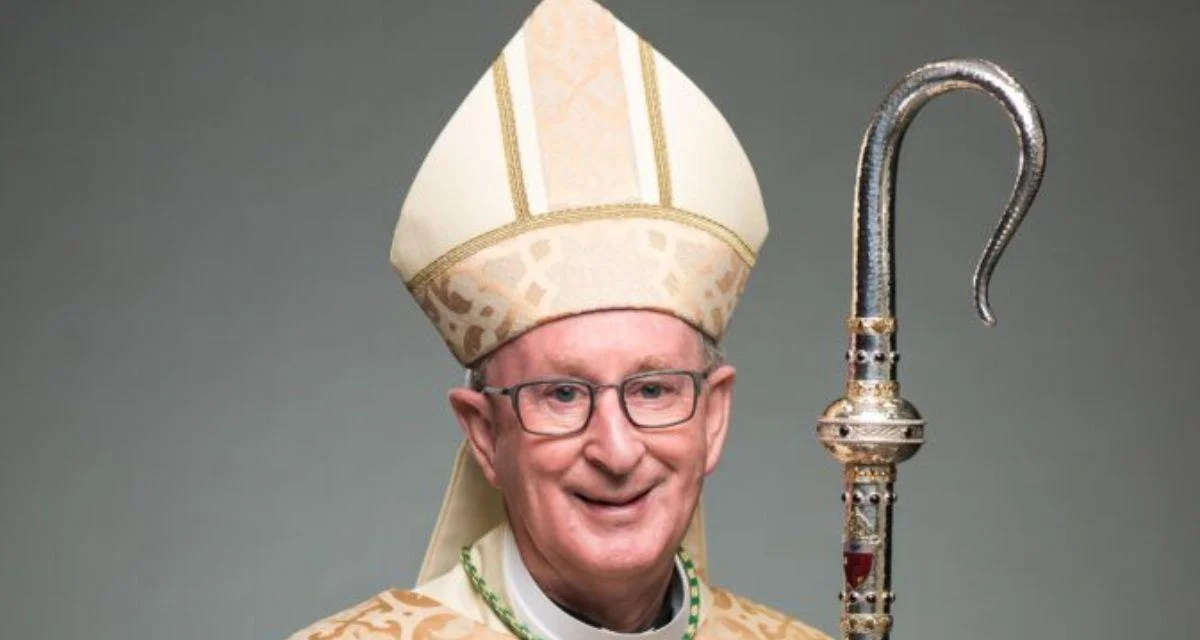
Reverend Joseph E. Kurtz, D.D. Bishop | Archdiocese of Louisville
By Maria Wiering, OSV News
ATLANTA — Earnestly listening to Latino Catholics in the church, including their perspectives in Catholic content, and showing their diversity in media visuals are crucial ways for Catholic media to reach those audiences, Latino Catholic leaders told Catholic communications professionals during a panel discussion on June 20.
“Challenge your assumptions. Don’t begin with your assumptions. Don’t make assumptions. Get to know the community,” urged panelist María del Mar Muñoz-Visoso, executive director of the Secretariat of Cultural Diversity in the Church for the U.S. Conference of Catholic Bishops.
“Build relationships in the community. Get to know your Hispanic/Latino population, which is very diverse. We come in all sizes, colors, flavors, political bents, theological bents, etc., etc.,” she said. “Be open and be aware … that they vary widely from diocese to diocese and from area of the country. The Latinos in Miami are probably not very like the Latinos in Grand Rapid, Michigan, or in California.”
Held at the Catholic Media Conference, the Catholic Media Association’s annual gathering, the hourlong panel discussion with a question-and-answer session titled “Communicating the Good News con Nosotros!” aimed to help Catholic communicators improve their reach to Latino audiences.
Besides Muñoz-Visoso, speakers included Detroit Auxiliary Bishop Arturo Cepeda; Gabriella Escalante, youth ministry coordinator for the Florida-based Southeast Pastoral Institute; José Manuel De Urquidi, founder and president of the Juan Diego Network; and Rafael Roncal, editor of El Pregonero, the Spanish-language newspaper for the Washington Archdiocese. Longtime Catholic journalist Ana Rodriguez-Soto moderated the bilingual panel.
Rodriguez-Soto said the purpose of the panel was not to “belabor the obvious” of why Catholic communicators should aim to reach Latinos but rather to share ideas on how to reach them.
Data from Georgetown University’s Center for Applied Research in the Apostolate shows 63% of U.S. Catholics under age 27 are Latino. Meanwhile, Latino Catholics are also leaving the church at high rates.
The panelists underscored listening's importance inclusion and accompaniment as they shared their unique experiences communicating within the Latino community.
Latino Catholics in America are not a monolith emphasized Rodriguez-Soto noting diversity among panelists themselves all born outside America Central South America Spain Rodriguez-Soto born Cuba raised Miami
“What does ‘Latino’ mean?” asked De Urquidi who founded Juan Diego Network advance multimedia content Latinos “That’s where we need start first all … Don’t think ‘Latinos’ one thing That’s very important”
Common strategy solely translating English content into Spanish insufficient because diverse ways Latinos speak think depending culture country origin he said De Urquidi urged communicators know audience do homework
There are “27 different countries that we come from right Does that mean migrants second generation third generation — means lot different things Who targeting” asked De Urquidi Mexico lives Dallas
Communicators should approach their Latino audiences with “I see you I want listen I want know about story” including hopes aspirations said Bishop Cepeda born Mexico raised San Antonio “This exactly where begin journey people”
Bishop encouraged communicators begin intentional efforts reach motivated heart accept success requires time patience
Escalante Venezuela lives Miami spoke experience helping more than 100 young adults create annual bilingual book prayers reflections Lent For young people she said "we need them know voices heard important"
Book demonstrates youth adults young people "have search too seeking something Seeking answers" she said
“Just listen young people only tell important listen give mic Give opportunity share ideas” Escalante said “And process walking form help grow”
Roncal Peru lives Washington spoke progression El Pregonero launched 1977 out Washington’s Spanish Center Today continues serve only newspaper also community tool helping address issues social justice Washington
De Urquidi contributed entrepreneurial expertise Latin American delegate Synod Synodality Vatican said communicators determine understand audience deciding forms media use reaching He generally found success messaging service WhatsApp instead email newsletters
Muñoz-Visoso Spain lives Washington said communicators assume "English-speaking Catholics interested what going Hispanic/Latino Catholics"
“The majority Hispanic/Latinos this country U.S born raised dominant language English bilingual While serving immigrant population necessity so catering second third generation beyond continue lose rapid pace Believe poor job communicating group general Church”
Muñoz-Visoso communications ministries intergenerational understanding both language preference platforms type consumption different generation
Often read more than one language get news online often through social media
“It’s just about needs preferences identity Church Our content visuals messaging reflect rich diversity communities activities ethnicities cultural religious traditions present communities called serve”
Muñoz-Visoso encouraged professionals smarter sharing including secular announcements building network contacts organizations sharing news quotes Spanish
Most work Spanish-language bilingual multilingual noted
“Given fact large numbers Hispanics identify still Catholics found experience Hispanic reporters secular usually generally more interested others bishops church general say” Muñoz-Visoso
“They may agree disagree certainly captive audience means just might pay attention pick up stories more often traditional networks populations cater own cultural affinity”
Muñoz-Visoso highlighted efforts supporting V Encuentro multiyear discernment pastoral priorities leaders national meeting led plan approved bishops She Encuentro multi-pronged interactive success story part local participants became protagonists communications moved dynamically leaders volunteers back
“We storytelling people Tell our Help us tell first person”


 Alerts Sign-up
Alerts Sign-up